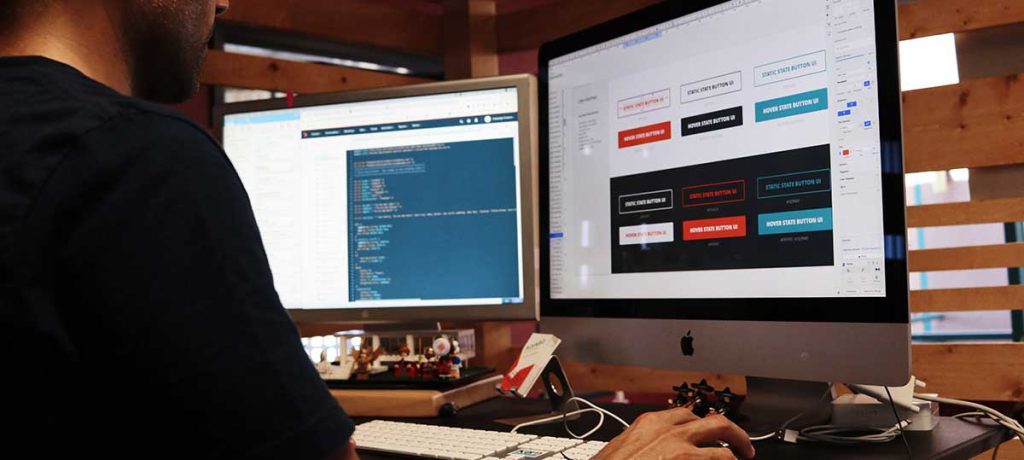
Imagine this: your online shop in Dubai is finally gaining traction. Orders are rolling in, ads are converting, and then—bam—problems start piling up. A customer’s card gets rejected for no obvious reason. Another complains that Apple Pay doesn’t work. Someone in Europe tries to check out and gets hit with surprise cross-border fees. Suddenly, the part of your business you thought would “just work”—payments—is the part everyone is mad about. Including you.
That’s not unusual here. In fact, online payment integration often decides whether a business sinks or sails. The UAE is sprinting toward a cashless economy, and people expect checkout to be quick, safe, and flexible. Doesn’t matter if you’re selling sneakers, late-night shawarma deliveries, or SaaS subscriptions—if paying feels like a hassle, you’re going to lose customers.
The tricky part? The options are overwhelming. Stripe, PayPal, PayTabs, Telr, Network International, PayFort—the list is long, and not every solution fits every business. Pick wrong, and you’ll bleed money on transaction fees or watch transactions fail for no clear reason. Pick right, and the process fades into the background—money flows in, customers trust you, and your conversion rate climbs without you thinking much about it.
So how do you actually choose? Let’s break it down.
Why Online Payment Integration Matters So Much in Dubai
Shoppers here are about as cashless as they come. Surveys show well over 70% prefer card or wallet payments over cash. Add Google Pay, Samsung Pay, plus buy now, pay later (BNPL) services like Tabby, Tamara, Spotii, and the picture is clear: if you’re not offering these, you’re leaving sales on the table.
And payment gateway integration isn’t only about shuffling money from A to B. When it’s done right, it:
- Builds trust by making customers feel safe.
- Nudges conversions higher because people can pay the way they want.
- Makes scaling across borders less painful.
- Cuts cart abandonment by making checkout frictionless.
1. Security & Compliance Aren’t Optional
People are jittery about where their card details end up—and for good reason. One breach can undo years of brand-building. A payment partner should treat compliance as non-negotiable.
Look for:
- PCI DSS certification.
- Fraud detection tools that actually catch shady activity.
- Encryption and tokenization.
- Central Bank of UAE compliance (AML, CFT rules).
💡 Tip: Ask if they support 3D Secure 2.0. Sure, the extra authentication step annoys some shoppers, but it saves you from fraud and expensive chargebacks.
2. Don’t Get Blindsided by Hidden Costs
It’s easy to be lured by a neat-looking “2.5% per transaction” fee. But the reality is, providers often sneak in extra charges.
Things to watch:
- Setup or integration fees.
- Refund/chargeback penalties.
- Cross-border fees.
- Monthly maintenance costs.
A Dubai store shipping to Europe, for example, can see margins vanish if the gateway slaps on steep international charges. That “cheap” deal suddenly looks expensive.
3. Does It Play Nice With Your Tech?
Your online payment integration shouldn’t feel like a six-month IT project.
Questions worth asking:
- Do they provide payment APIs for custom builds?
- Plugins for Shopify, WooCommerce, Magento, OpenCart?
- Mobile SDKs for iOS and Android apps?
- Developer documentation that’s actually useful?
💡 If most of your sales come from mobile (and in Dubai it usually does), make sure the checkout flow is truly mobile-friendly—not just “responsive” on paper.
4. Cover All the Ways People Pay
Dubai isn’t one market—it’s a mix of locals, expats, and tourists. Everyone pays differently. A narrow setup means lost sales.
Your provider should support:
- Visa, Mastercard, Amex.
- Regional players: Network International, PayFort, PayTabs, Telr.
- Digital wallets: Apple Pay, Google Pay, Samsung Pay.
- BNPL: Tabby, Tamara, Spotii.
- Multi-currency transactions.
The more doors you open, the fewer reasons customers have to leave.
5. Checkout UX Can Make or Break Sales
About 70% of online shopping carts get abandoned. Often, it’s because checkout is clunky.
A good partner should offer:
- Fast-loading checkout pages.
- One-click payments for returning users.
- Localized flows in Arabic and English.
- Smooth mobile checkout experience.
💡 Here’s the rule of thumb: if nobody remembers the checkout process, you did it right.
6. Think Long Term
It’s tempting to pick whatever works today, but what happens when sales double, or you go international? Short-sighted choices in online payment integration can box you in later.
Future-proof features include:
- 24/7 support.
- Analytics dashboards.
- Ability to add BNPL or even crypto payments if that’s where you’re headed.
- Stability during spikes—think Black Friday, Ramadan sales, viral TikTok moments.
7. Support That Doesn’t Vanish
Payment issues are urgent. Every hour they drag on costs you money.
When comparing, ask:
- Is there a Dubai-based support team?
- Do you get a dedicated account manager?
- How fast do they actually respond?
Sometimes the biggest difference between two providers isn’t the feature list—it’s who picks up the phone at 11 p.m. when checkout breaks.
Final Word
There’s no universal “best” online payment integration partner in Dubai. What you need depends on where your business is:
- Startups want low fees and plug-and-play simplicity.
- Scaling companies need multi-currency support and fraud prevention.
- Enterprises often demand custom payment solutions and round-the-clock support.
The bigger point is: don’t treat online payment integration like a background tool. Treat it as a growth driver. The right partner builds trust, helps you scale, and saves you from late-night checkout emergencies.
And if you’ve ever had to troubleshoot a payment failure on a Friday evening, you already know—it’s worth getting this choice right the first time.


